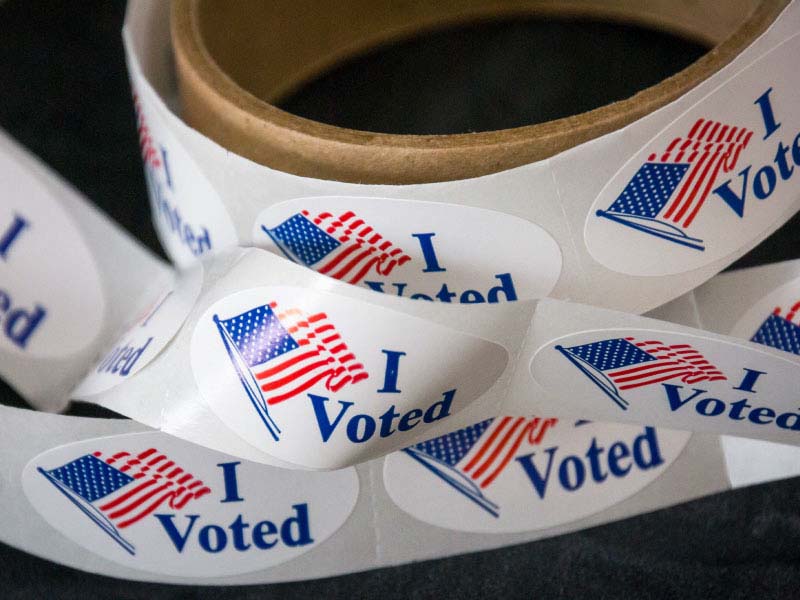Election stress didn't end on Election Day
By Michael Precker, American Heart Association News

The good news is that after a long, heated, divisive campaign, the polls have closed, and the pre-election stress is over.
The bad news is that now it's time for post-election stress, and the accompanying health risks are still here.
"People often get very invested in the results of an election," said Barry Jacobs, a clinical psychologist and author in Philadelphia. "If that result does not bear out, they get very disappointed, and that may lead to tension and resentment."
The resulting stress can cause a landslide of problems, from insomnia to high blood pressure, diabetes, depression – and heart disease.
"People don't generally develop those conditions due to short-term, severe stress, but it can certainly exacerbate them," Jacobs said.
A study from the 2016 presidential election underscored the point. In the two days following the election, 62% more people – 94 people versus 58 – in the 4.6-million-member Kaiser Permanente Southern California health system were hospitalized for a heart attack or stroke than in the same two days of the previous week.
"There is a pretty wide body of literature that shows that significant events like natural disasters, terror attacks, even sporting events have been associated with higher rates of cardiovascular disease in the immediate time period following the event," said Matthew Mefford, an epidemiologist with Kaiser Permanente and lead author of the study published in October in the journal PNAS.
"More work will need to be done, but this study should encourage health care providers to pay greater attention to how stress is linked to political campaigns and elections, particularly if they are caring for patients with known histories of cardiovascular disease," he said.
Even if stress does not trigger an immediate reaction, it can encourage bad habits with consequences in the longer term.
"Stress has lifestyle implications," Jacobs said. "People overeat or overdrink. They smoke too much or shop too much as a way of managing stress. These all have their own detrimental health effects."
This year's election, both experts said, could heighten the risks.
In addition to the sharp divisions and harsh rhetoric of a long campaign, the 2020 vote took place amid a backdrop of other stressors: a deadly pandemic, economic distress and national protests calling for racial justice.
"There probably is some aspect of a cumulative effect of all these stressors," Mefford said. "It makes it even more important to focus on wellness strategies."
Those strategies may be familiar, but they bear repeating in this next period of uncertainty and disquiet, the post-election phase leading to new congressional and presidential terms.
"With all the things in our lives that are difficult, for me it goes back to the Serenity Prayer," Jacobs said. "Accept the things we cannot change and have the courage to change the things that we can."
Beyond that, he said, everyone has his or her own way of coping with stress, from spending time in nature and engaging with friends to keeping physically active and relying on faith.
Mefford concurred. "It's really important to focus on maintaining your routines," he said. "Get adequate sleep, eat healthy, engage in wellness behaviors that can lower your stress levels like exercise, yoga, meditation and deep breathing. You want to make sure you're keeping yourself as healthy and focused as possible."
And in an era when stress-inducing news never seems to end, Mefford has another tip: At least once in a while, turn it off.
"If you feel yourself getting especially stressed, set some boundaries with consuming news and social media and take time for yourself," he said.
However you feel about the election, Jacobs counseled, remember this: "In politics, there's always another election coming down the pike. If the result is not what they wanted, they can always work toward a different result next time."
If you have questions or comments about this story, please email [email protected].





